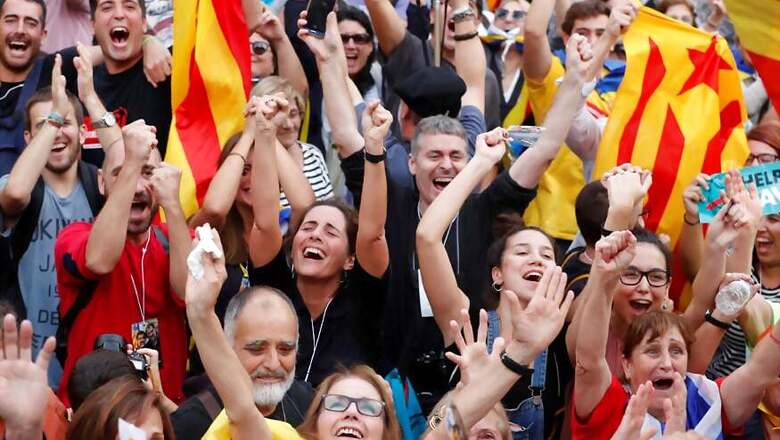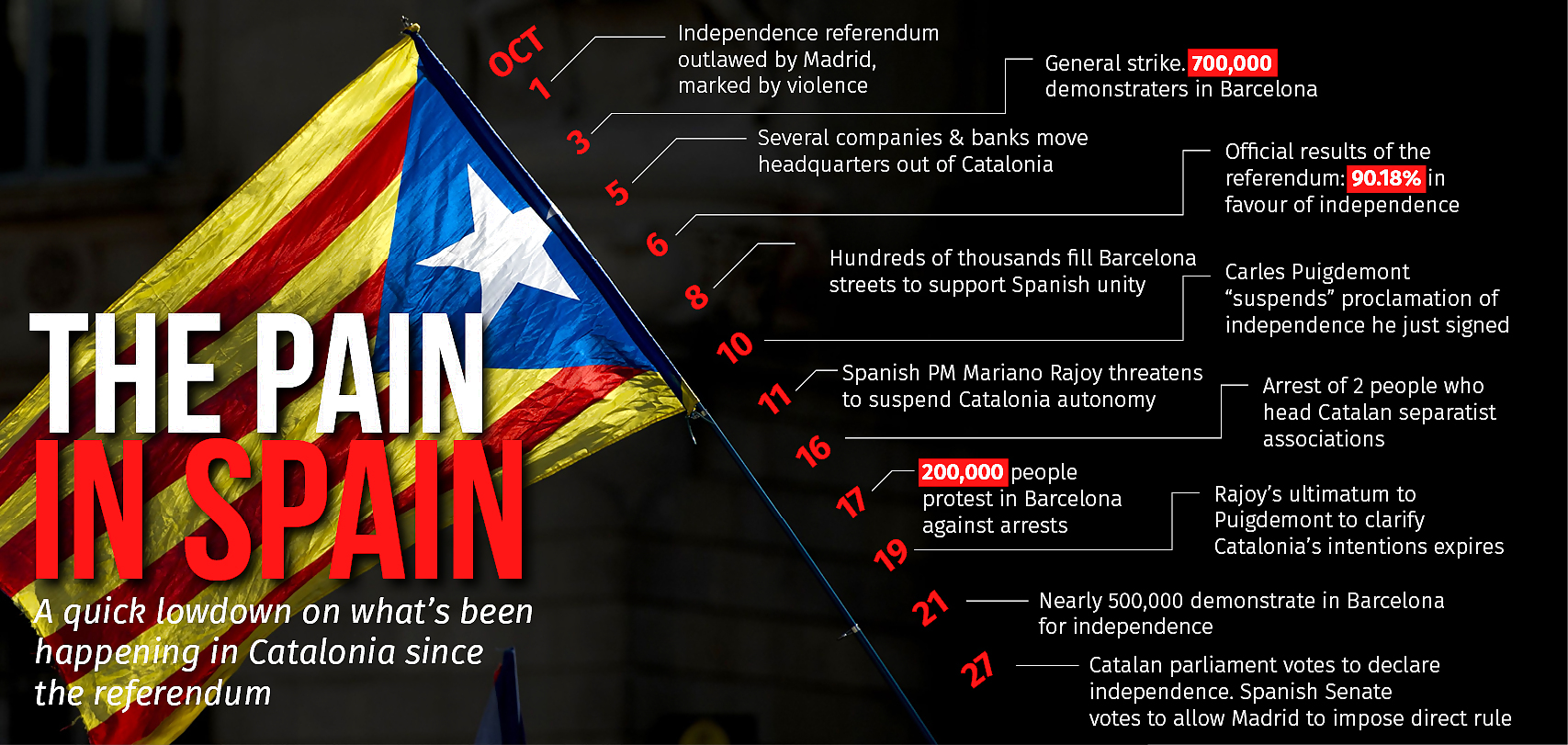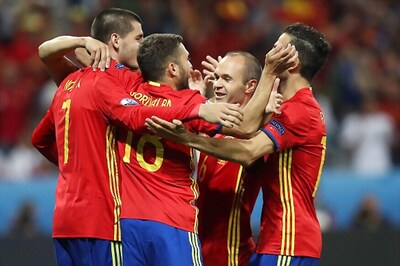
views
Barcelona: Pro-unity protesters will gather in Catalonia's capital Barcelona Sunday, two days after lawmakers voted to split the wealthy region from Spain, plunging the country into an unprecedented political crisis.
As Madrid moved to quash the independence bid, secessionist leader Carles Puigdemont was defiant on Saturday, calling for "democratic opposition" to the central government's seizure of regional power.
Puigdemont accused Madrid of trampling on the will of independence-seeking Catalans with the first curtailment of regional autonomy since Francisco Franco's brutal 1939-75 dictatorship.
Spain is on a knife edge as it grapples with its worst constitutional crisis in decades, triggered by an unlawful Catalan independence referendum on October 1 that was shunned by many and marred by police violence.
Throwing down the gauntlet Friday, Catalan lawmakers passed a motion, by 70 votes out of 135 in the secessionist-majority regional parliament, to declare the region of 7.5 million people independent from Spain.
Prime Minister Mariano Rajoy responded by deposing the regional government, dissolving its parliament, imposing direct rule and calling December 21 elections to replace them.
Rajoy's intervention was "contrary to the will expressed by the citizens of our country," Puigdemont said in a statement that he signed as "President of the Generalitat (government) of Catalonia".
Citizens mobilise
Barcelona readied for Sunday's anti-independence march under the slogan: "Catalonia is all of us!".
The rally is due to kick off at noon near where tens of thousands of people celebrated the new "republic" with a song, wine and fireworks just two days earlier.
Organisers of Sunday's gathering had assembled hundreds of thousands of people for a similar protest in the city on October 8.
Participants will include representatives of three Catalan opposition parties -- including Rajoy's conservative Popular Party, in what may amount to the start of an election campaign.

Rajoy drew sweeping powers, approved by the Senate, under a never-before-used constitutional article designed to rein in rebels among Spain's 17 semi-autonomous regions.
He used these to axe Puigdemont, his deputy, regional ministers, heads of departments, and the chief of police.
The move has angered some Catalans.
Analysts warn of trouble next week as civil servants, resuming work after the weekend's political turmoil, may refuse orders from caretaker bosses sent from Madrid.
Far-left supporters of Puigdemont have threatened "mass civil disobedience" if Rajoy carries out the power grab, but have yet to announce any plans.
'A free country'
Rajoy's deputy, Soraya Saenz de Santamaria, was put in charge Saturday of administering the rebel region.
Puigdemont, in reply, vowed to continue "to work to build a free country".
He urged opponents of Madrid's intervention to act "without violence, without insults, in an inclusive way" -- and to respect the views of pro-unionists.
In Madrid, several thousand people gathered on the central Plaza Colon Saturday, waving the Spanish flag as loudspeakers blared the popular song "Y Viva Espana" (long live Spain).
Many of those assembled blamed Puigdemont for dragging Spain into the long-running crisis and called for him to be jailed.
Prosecutors announced Friday they will file charges of rebellion against Puigdemont next week. He risks 30 years in jail.
On the sporting front, Spanish champions Real Madrid's head into the fray on Sunday when they travel to Girona, a heartland of pro-independence support.
Real Madrid manager Zinedine Zidane insisted on Saturday that "it's a league game we're going to play tomorrow, and that's it. You have to think about the game, not the context".
Roughly the size of Belgium, the region accounts for about 16 percent of Spain's population, a fifth of its economic output, and attracts more tourists than anywhere else in the country.
Economy
Before the crisis, it enjoyed considerable autonomy, with control over education, healthcare and policing.
While fiercely protective of their language, culture and autonomy, Catalans are deeply divided on independence, according to polls.
The Spanish government has the support of the United States and allies in the secession-wary European Union still reeling from Britain's decision to leave its fold.
Many fear the economic impact as the standoff drags on, with some 1,700 companies having moved their legal headquarters out of Catalonia so far.
The region's economic output is equivalent to that of Portugal.




















Comments
0 comment